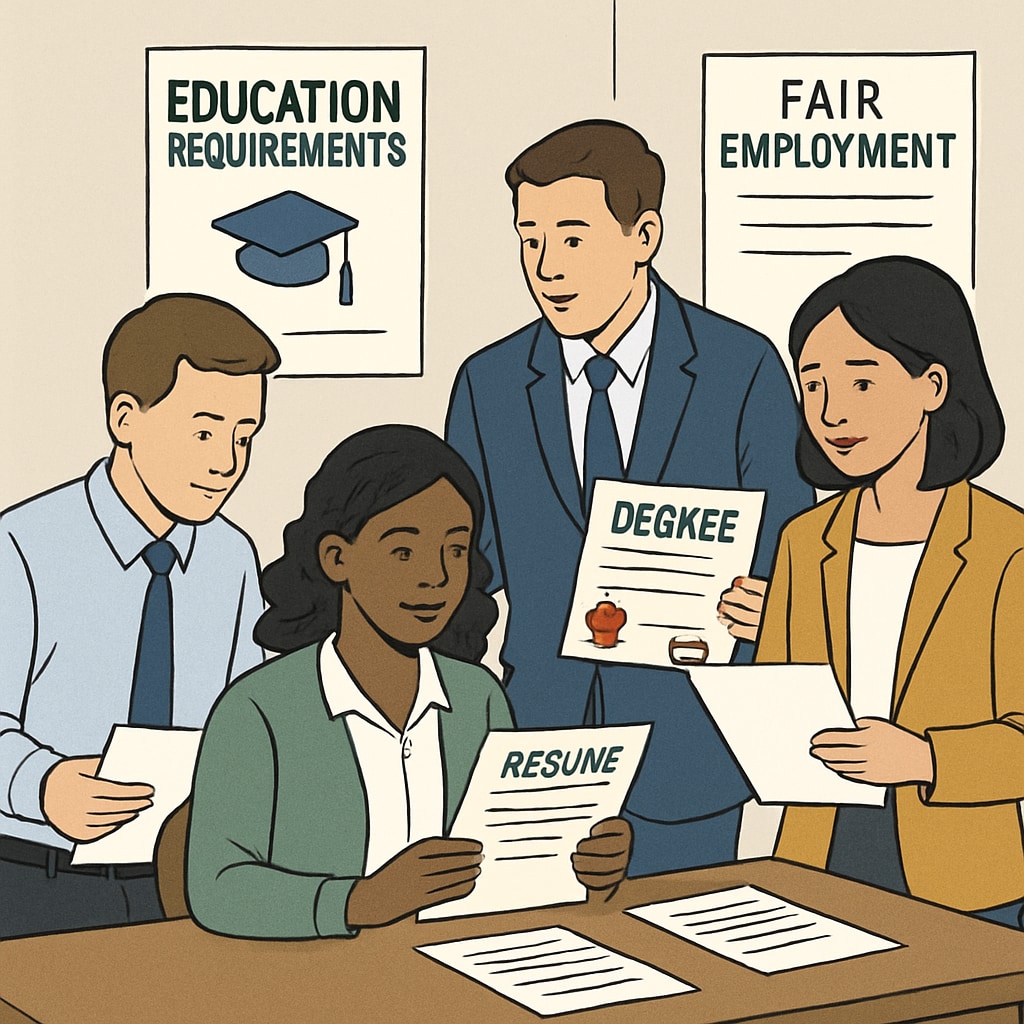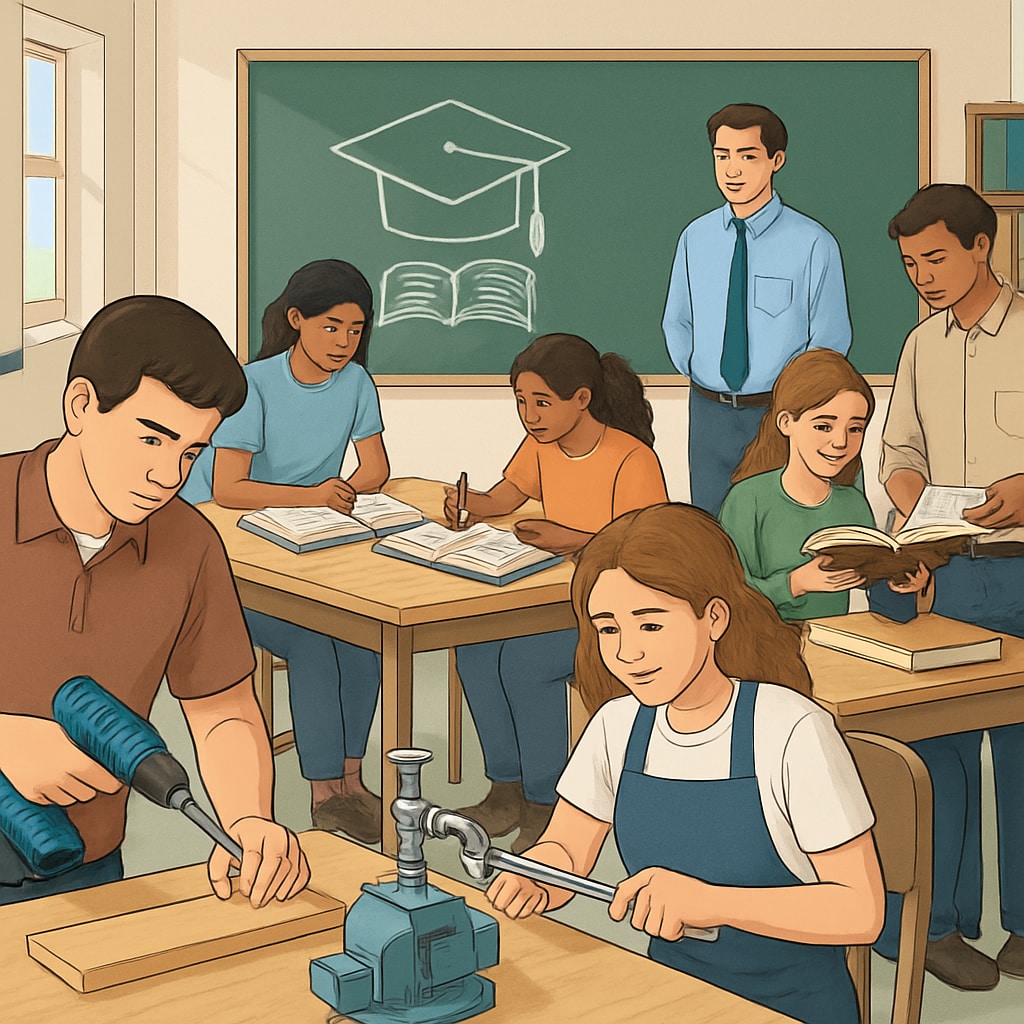Arizona’s employment policies have sparked debate surrounding education requirements, employment discrimination, and education policies. A puzzling trend has emerged: college graduates are sometimes overlooked in favor of high school diploma holders, highlighting systemic issues within the state’s educational and employment frameworks. This phenomenon, often referred to as “high-education discrimination,” not only disadvantages individuals with extensive academic achievements but also exposes a misalignment between K12 education and higher education systems. How did Arizona reach this paradoxical state, and what reforms can address this educational conundrum?
The Flaws in a Credential-Centric System
At the core of Arizona’s employment dilemma lies the overemphasis on credentials rather than skills. State employment policies sometimes prioritize specific certifications or diplomas over broader academic qualifications, inadvertently sidelining candidates with college degrees. For example, certain public sector jobs have strict requirements for specific high school credentials or vocational training, even when a college graduate possesses transferable or superior skills. This misplaced focus on certificates highlights the shortcomings of a credential-centric system.
Such policies undermine the value of higher education and discourage individuals from pursuing college degrees. They also perpetuate employment discrimination against those who have invested time and resources in higher education. As a result, the workforce becomes fragmented, with talent mismatched to roles that could benefit from broader academic and intellectual training.

Systemic Disconnect Between K12 Education and Higher Education
A significant factor contributing to this paradox is the disconnect between K12 education and higher education in Arizona. The two systems often operate in silos, with little coordination to ensure a smooth transition for students. This lack of synergy results in policies that prioritize short-term vocational achievements over long-term academic growth. As a result, K12 education is tailored to immediate workforce entry, while higher education is undervalued in broader policy discussions.
For example, vocational certifications are frequently highlighted as essential for addressing labor shortages in specific industries, such as construction or healthcare. While these certifications play a vital role, they should not come at the expense of higher education pathways. A balanced approach is necessary to ensure both systems complement each other, rather than compete.
Building an Inclusive and Skills-Oriented Framework
To address these challenges, Arizona must reform its education and employment policies to prioritize skills and competencies over rigid credentials. Here are some actionable steps:
- Adopt a skills-based hiring approach: Employers should assess candidates based on their abilities, practical experience, and transferable skills, rather than solely on specific certificates or degrees.
- Foster collaboration between K12 and higher education: Policymakers should create programs that bridge the gap between these systems, ensuring students have access to both vocational training and academic opportunities.
- Promote lifelong learning: Encourage continuous education and professional development to help workers adapt to changing job market demands.
- Raise awareness among employers: Educate businesses on the value of diverse educational backgrounds and the importance of inclusivity in hiring practices.
By implementing these measures, Arizona can create a more inclusive employment framework that values both higher education and vocational training. This will not only benefit job seekers but also enhance the state’s overall workforce quality and competitiveness.

Conclusion: Rethinking Arizona’s Education and Employment Policies
Arizona’s current employment policies expose deep flaws in the way education is valued and evaluated. The state must move away from rigid credential-based systems and toward more inclusive, skills-oriented approaches. Addressing the disconnect between K12 education and higher education is critical for ensuring that all individuals, regardless of their academic achievements, have equitable access to job opportunities. Ultimately, by prioritizing actual competencies over arbitrary credentials, Arizona can build a stronger, more adaptable workforce ready to meet the challenges of the future.
Education requirements, employment discrimination, and education policies are interconnected issues that demand immediate attention. Reforming Arizona’s policies could serve as a model for other states facing similar challenges, creating a more equitable and effective approach to education and employment nationwide.


